
Two blank cheques: are Ontario and B.C. copying the homework?
Governments of the two provinces have eerily similar plans to give themselves new powers to...
On a warm, dry summer day, Jennifer Abbott was tending to her giant squash plants in her garden on Saltspring Island, B.C., when she noticed white spots freckling the plants’ smooth green leaves. She looked up and saw what appeared to be snow falling from a flame-coloured sky.
For a minute, the world moved in slow motion, Abbott recalls.
Then she realized that “snow” was ash coming from wildfires burning across the region, fuelled by climate change.
Abbott knew what she was feeling was grief, having lost her sister, Saille, to cancer a few years before.
That was the moment Abbott, a Sundance and Genie award-winning filmmaker and co-director and editor of The Corporation and sequel The New Corporation, decided to make a film about personal and planetary grief. The Magnitude of All Things opens today at the Vancouver International Film Festival.
Grief can help us better understand ourselves and the climate crisis, Abbott says, but we need to slow down to let ourselves feel it.
“I realized that one of the reasons we weren’t making effective progress on the climate front was likely because the scale and violence of climate change is just so big,” she says. “It’s really, really hard for people to face it, and yet we have to face it if we’re going to be prepared to make the changes that we need to make.”
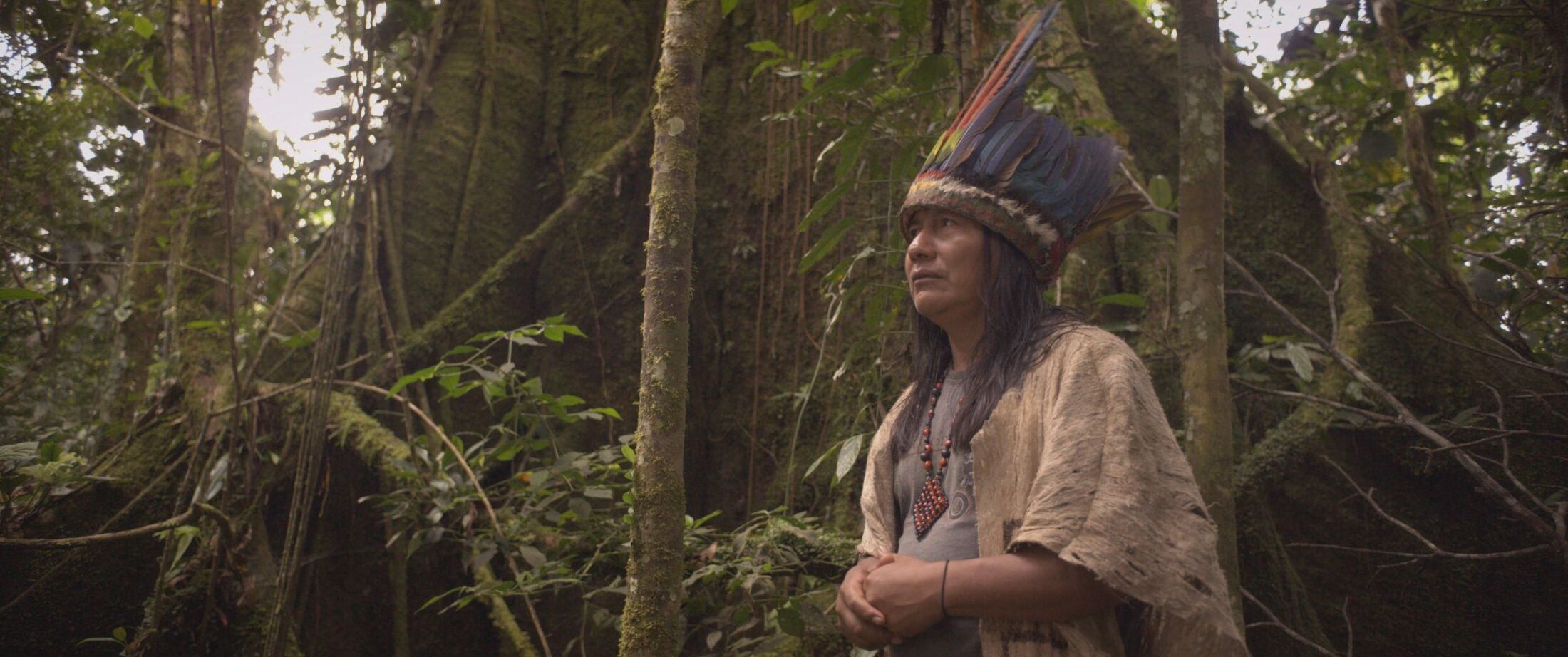
Oil and mining exploration threaten the Amazon rainforests that Manari Ushigua, Traditional Leader of the Sápara Nation, calls home. Photo: The Magnitude of All Things
The film travels from disappearing ice floes in Nunatsiavut to deforested territories of the Sápara Nation in the Amazon, and from Greta Thunberg’s solitary climate strikes on the streets of Sweden to Extinction Rebellion protests in London.
Abbott reminds us that the world is staggeringly beautiful and in the midst of unprecedented destruction. She introduces us to Elders, teenagers, politicians and a coral scientist (to name a few) who are navigating feelings of hope and loss while doing everything they can to turn the tides.
The Narwhal spoke with Abbott about what she’s learned along the way.
I was in the process of brainstorming my next film and I had read the book by Amitav Ghosh called The Great Derangement. It asks the question: why isn’t every book, every piece of art, every film, every cultural expression addressing the climate crisis? Because it is just so big and it is the defining moment of our time. I agreed with him. So I wanted to make a film that addressed climate change.
And then I had that moment in the garden where I recognized my feelings of grief towards the changing world around me. As I say in the film: I knew that territory. It was similar in tenor but different in intensity to the feelings of grief I had when I lost my sister.
I wanted to make a film that helped people look towards their deepest fears and sorrows around climate catastrophe.
I think [climate psychologist] Sally Gillespie says it in our film really well: you have to come to terms with mortality because the climate crisis is an existential crisis.
Before my sister died, she had written a lot of letters to friends and family. In those letters, I observed all these parallels in terms of what she was writing and the process that we all have to go through to shift our consciousness around to the climate crisis. Whether that was her writing about acceptance or hope — she identified hope as being no friend to her. And after her chemotherapy, she said she felt like all of her references of who she was were obliterated.
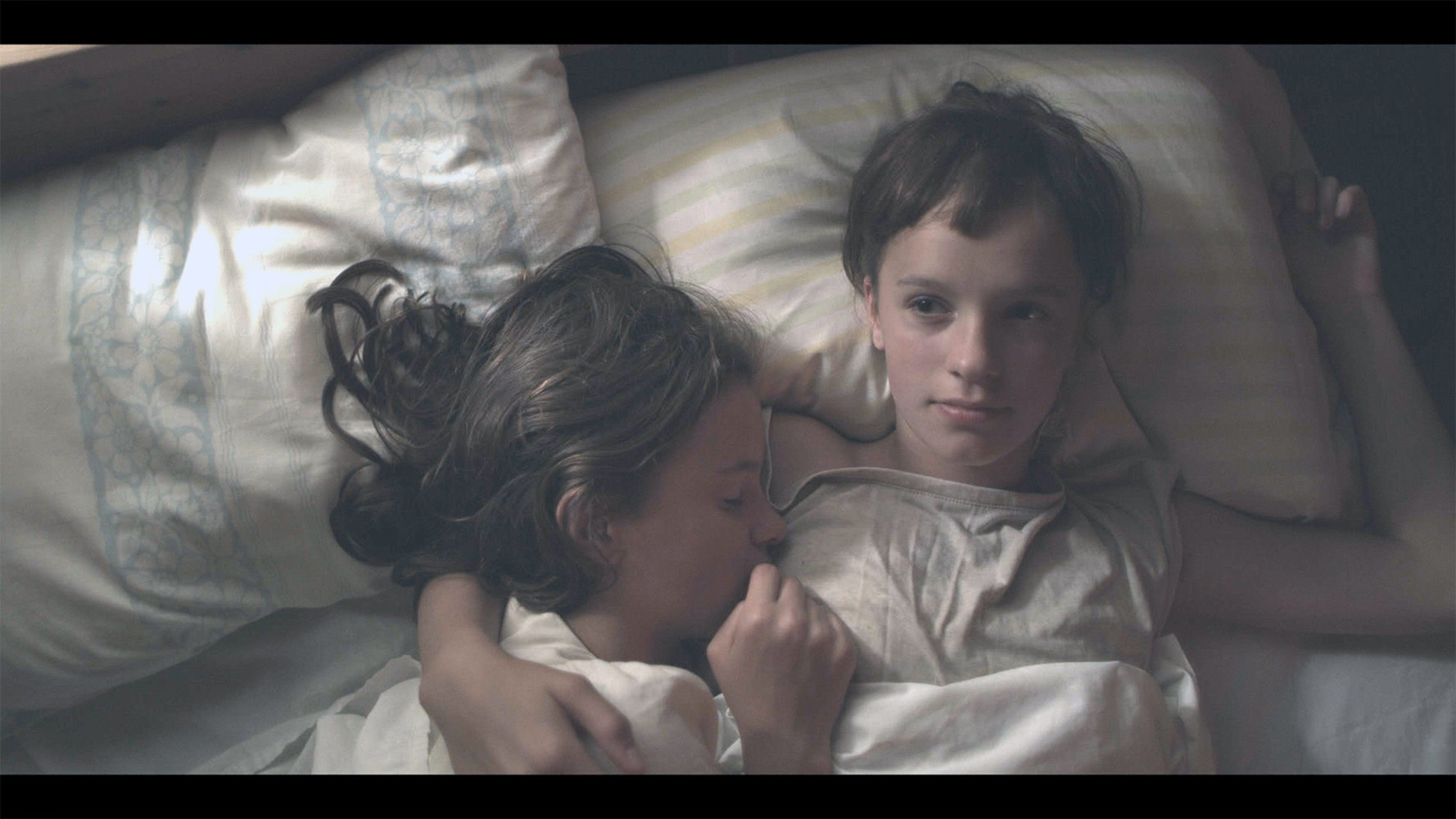
Young Jennifer and Saille in The Magnitude of All Things, a new feature documentary by Sundance award-winning director Jennifer Abbott. Photo: The Magnitude of All Things
Similarly, as [health geographer and leading voice on ecological grief] Ashlee Cunsolo
says in the film, climate change asks a lot of humanity because it challenges us on this modernity project: this idea that our lives will always just get better and better and that our children’s lives will get better and better. Obviously this is no longer true.
Particularly for those of us in this neoliberal, Western culture, we have to question everything we’ve been told about ourselves: what is our place on this planet? Who do we want to be, and how do we atone for the damage we’ve done?
So there were all these overlapping themes in my sister Saille’s letters and the reflections I was having related to the climate crisis.
Not everybody dies the way my sister died. She had time to reflect deeply upon life. Of course, she wanted to live and she did everything she could to live, but she also surrendered to what was. When it became clear that she wasn’t going to survive much longer, she found it within herself to accept her death. And at that moment she became more alive than ever.
We spend so much time pushing our mortality away, and we similarly spend so much time pushing the truth about climate change away. And I think if we can deal with one, we can deal with the other. There’s crossover there.
I think if you have the courage to face your own mortality, or if you have the privilege as I did to have someone you love so much die a death where they could teach you something about life, that really fortifies you.
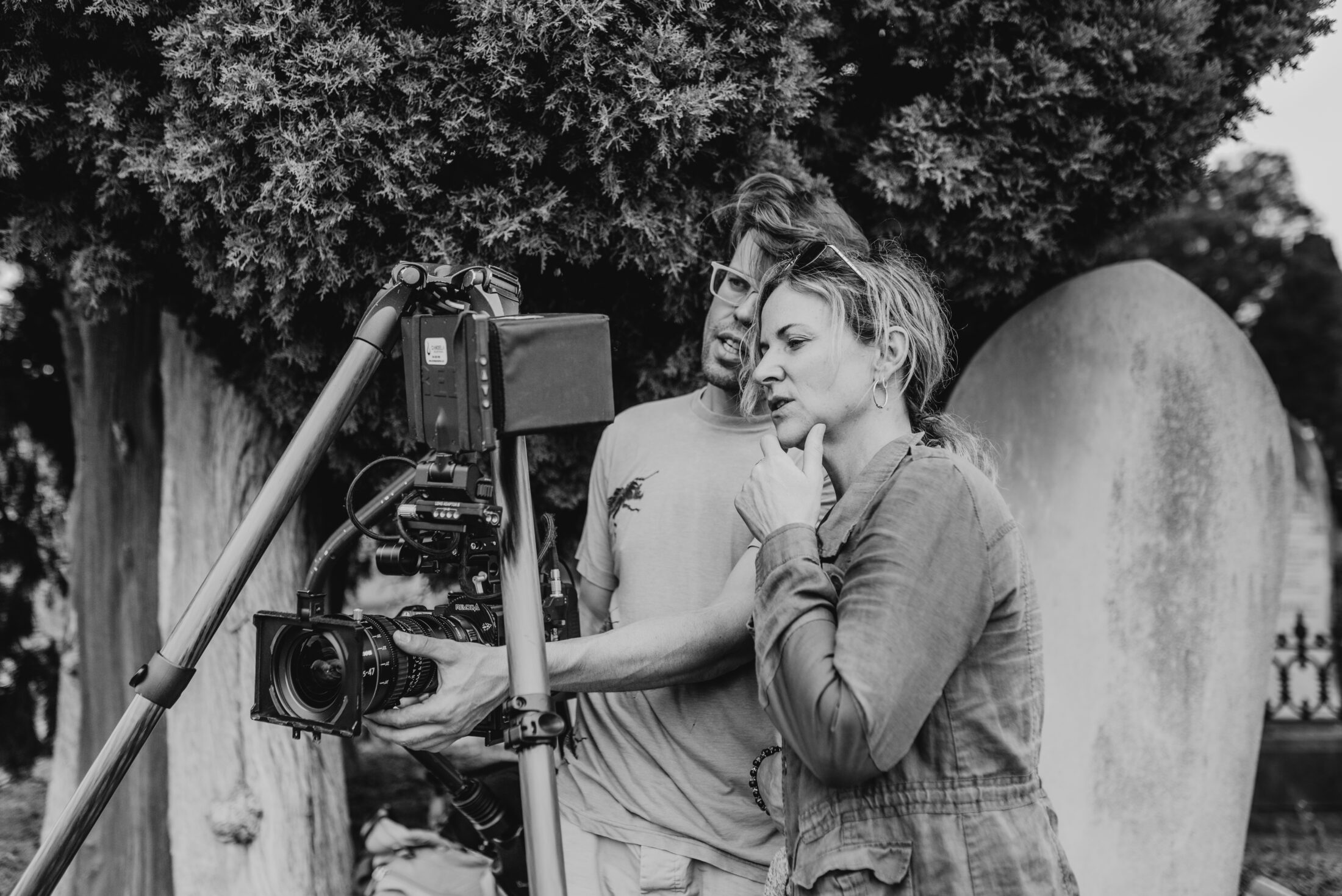
Jennifer Abbott works with director of photography Vince Arvidson in Melbourne, Australia. Photo: The Magnitude of All Things
More information is not doing the trick. I think that’s why I felt compelled to contribute to a discussion that included how we were feeling.
The new field of climate psychology identifies that our dominant narratives around climate change are focused on science, or on solutions, or on targets — and all of these things are vitally important — but they also totally exclude how people might be feeling.
And so I felt it was important to try and contribute to dialogue about that, with the hope that it would enable some people to look towards climate change, as opposed to looking away.
In terms of policy and solutions, incrementalism is obviously off the table. It’s too late for incrementalism.
I’ve been reading Seth Klein’s new book, A Good War. He says we need to address the climate crisis like we addressed World War Two. That includes making the kind of sacrifices we made, amassing the kind of resources we did and being singularly focused in our efforts. I think his argument is very compelling.
I’m not suggesting that we do this without compassion. We need to help workers in the tar sands transition to renewable vocations, for example. But we need to do it with determination and with the knowledge that this is the only way we’re going to save ourselves.
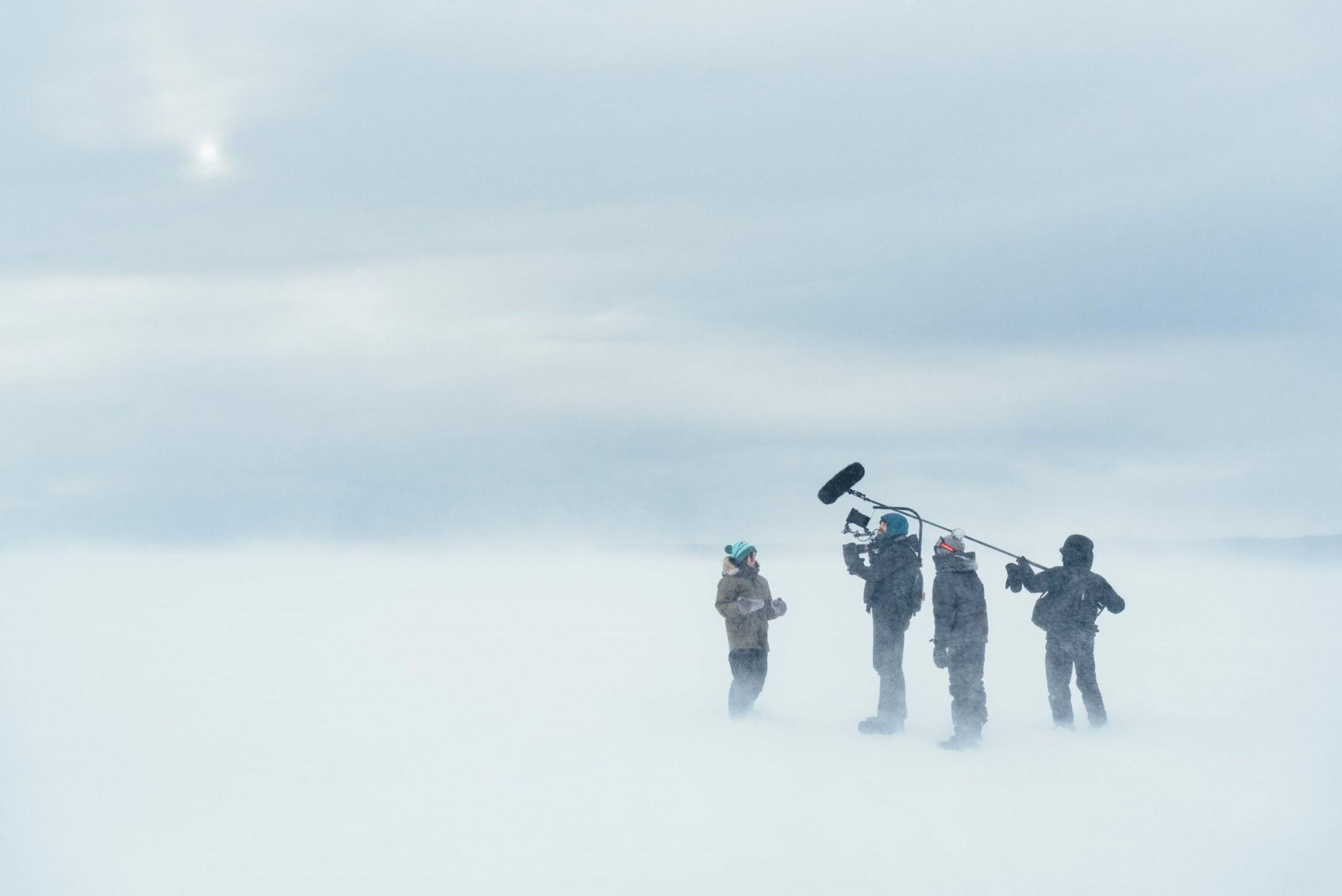
The Magnitude of All Things crew films in Labrador. Photo: Stasia Garraway
I can relate to this question since I’ve used those coping mechanisms myself. Climate change is so overwhelming. And if we identify the source as corporate capitalism as my other film The New Corporation — co-directed with Joel Bakan — does, it also fills us with rage, fear, despair and all kinds of very difficult emotions.
These are emotions that we generally don’t feel comfortable with, and understandably so. As humans we like to avoid them. I think in Western neoliberal culture in particular, we glorify youth, pretend we won’t die and suggest that the path to happiness is through consumption, which is in some ways a distraction.
I think opening ourselves up to grief opens us up to who we really are. If we deny mortality, and the circularity of life, then we’re denying this huge part of ourselves, and then we’re not really whole.
A week after my sister died, even though I missed her more than anything, there was a moment when I felt rapture. It was because I felt reacquainted with a part of myself that had been missing and that our culture pushes away.
I think we suffer a great deal when we push this part of ourselves away. So to actually let grief in can be very healing.
I wanted to present a more nuanced and reflective exploration of hope. There’s a lot of pressure for films to be “hopeful.” But to me hope can be a form of denial itself: if we have hope, we might think somebody else is going to take care of the problem and we won’t be willing to make great sacrifices to create change.
“I’m all for authentic hope. Hope that’s a verb and a practice.”
I think it’s way, way more complicated than simply whether or not we have hope. For those that have hope, I don’t want to suggest they shouldn’t. I am all for hope. I’m all for authentic hope. Hope that’s a verb and a practice.
What is the choice? Do we lose hope and then give up? We can’t give up because it’s not over. And what we do now makes a difference.
We don’t know whether our actions are going to be successful or not. But even if they’re not successful, we have a moral responsibility as humans to do everything we can.
Well, here we are in Vancouver, and at times I haven’t been able to see across the street because of the smoke. It’s a loss — it’s not a change — it’s a loss. We have lost clean air. And that is sad. It’s so sad that there are almost no words to describe it.
And if a person doesn’t feel that loss and doesn’t let themselves feel grief, and instead blocks it, which I understand because it’s really hard to feel, then I think they’re experiencing a form of denial.
The way [environmental activist and author] Joanna Macy speaks about grief is really interesting. In her work, she identified that people are afraid to let it in because they think they’ll be stuck there forever. But really, for many people it’s the opposite — it just sort of flows right through you.
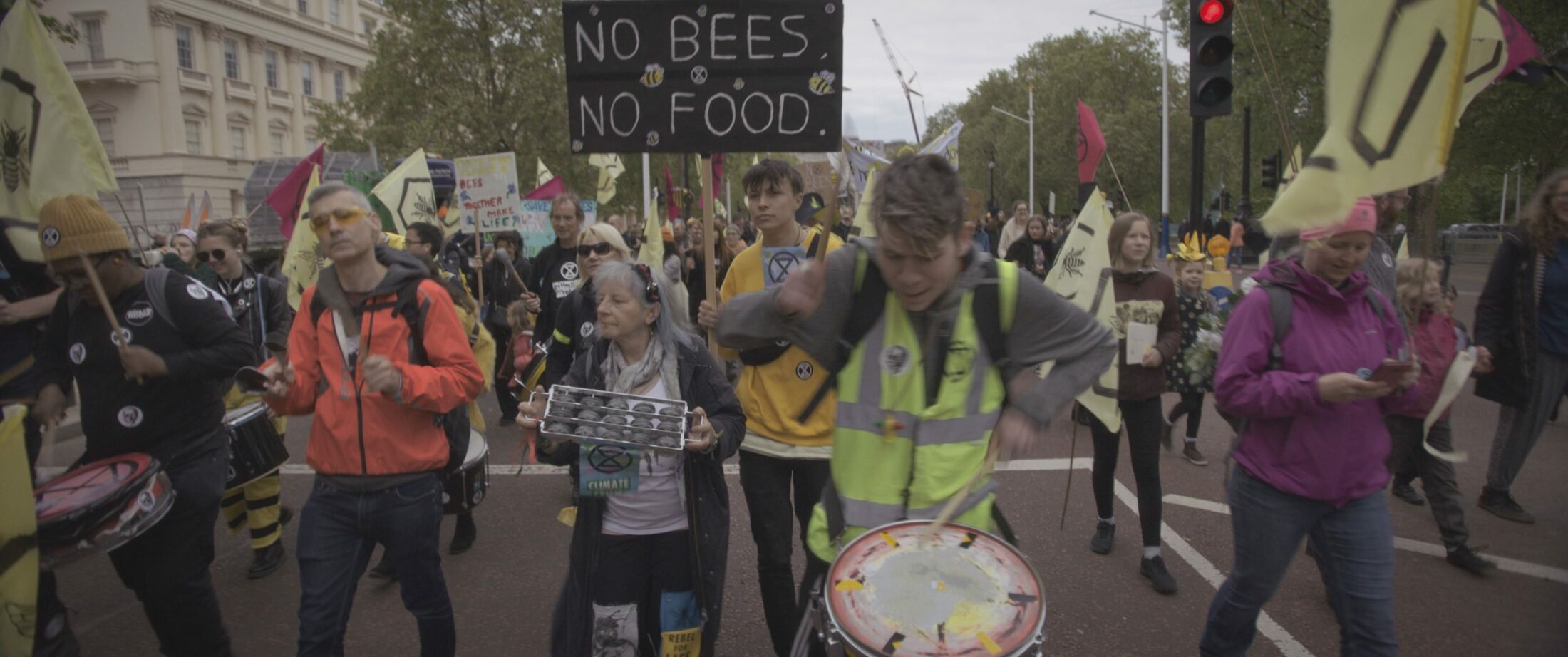
Members of Extinction Rebellion protest climate change in London, England. Photo: The Magnitude of All Things
And then you can let it transform you into a better version of yourself, as opposed to letting it destroy you. So I think that if we’re open to letting these difficult feelings in, we actually fire ourselves up and turn these difficult emotions into action.
Sometimes I feel completely shattered. And I look in the mirror, and I’m surprised I see a whole person. And then other days, I feel resilient and buoyed and strong and determined and that my life has a lot of purpose and meaning. So I think another thing to really recognize is it can be very dynamic.
My heart has been broken so many times that the scar tissue holding it together has just made it so big. That’s at my best, mind you, it’s not always the case. Without question sometimes I’m quite broken and in despair. But I think the more you work with these things, the more you come out the other side.
We were really never in as much control as we thought we were, and I think that’s part of how climate change is a challenge to the modernity project which posits humans —and arguably men— as agents in the world that shape it according to our needs and desires. I think climate change and the pandemic are wake up calls for humanity saying no, that is not the way it is.
Mind you, this is not all of humanity, because let’s face it: the people who contributed the least to climate change are suffering the most, and many of those people have a worldview and a lifestyle which is far less destructive.
We have a pandemic and climate change and they’re telling us something. Whether or not we listen in many ways determines whether or not we have a livable planet in the future.
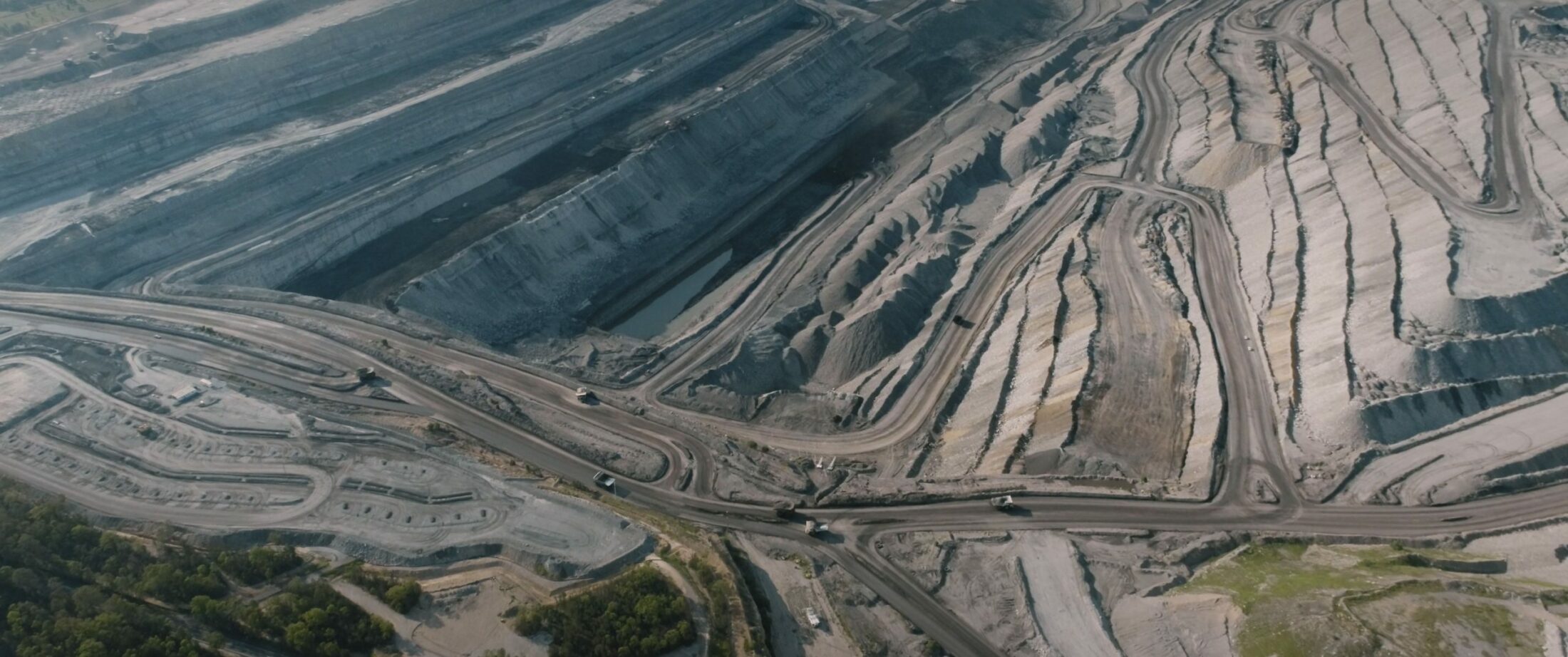
One of 22 open-cut coal mines on the traditional territory of the Wonnarua People in New South Wales, Australia. Photo: The Magnitude of All Things
I think what’s going on with the pandemic is that you actually hear people speaking about grief and hear people speaking with melancholy about the way it used to be. Not everybody. Not everyone wants to go back to what was normal — those of us who see that that normal was highly problematic — but we would love to go back to pre-pandemic days, for sure.
I think there’s a similar emotion that seems to be swelling upwards and it’s related to the pandemic. Because it’s about loss again. It’s about loss of human life and the loss of social connection. It’s about loss of the control we thought we had over our lives. There’s this sense that we’re kind of lost in the world.
And then there’s loss when it comes to the wildfires. I’m a runner and I can’t run. Obviously that’s a small sacrifice, but I’ve hardly gone outside, and my windows are closed. And most importantly, I look out my window and I understand that this is a really, really difficult moment where climate catastrophe is upon us. And that is very difficult to come to terms with, but it’s here.
But in the process of making my film, I came out the other side feeling like I can face what is to come whatever that might be, and right now that’s what I have to do. That’s what we all have to do, even if we don’t want it to be this way.
Get the inside scoop on The Narwhal’s environment and climate reporting by signing up for our free newsletter. On a warm September evening nearly 15...
Continue reading
Governments of the two provinces have eerily similar plans to give themselves new powers to...

Katzie First Nation wants BC Hydro to let more water into the Fraser region's Alouette...

Premier David Eby says new legislation won’t degrade environmental protections or Indigenous Rights. Critics warn...
